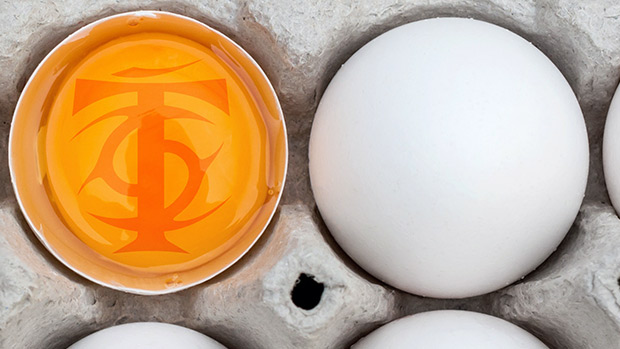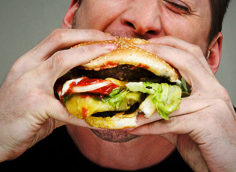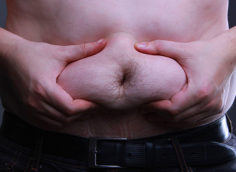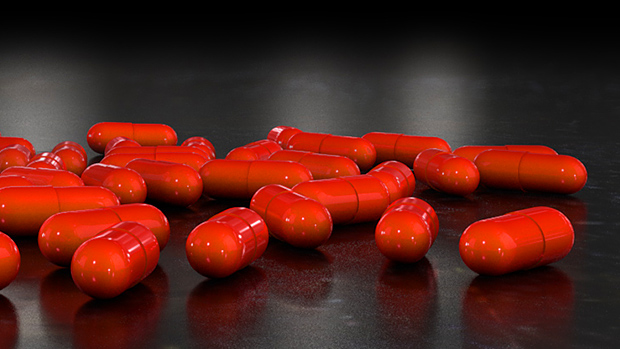How to Store Body Fat Faster
America seems to be in the grips of yet another cultish diet trend. It involves replacing breakfast with coffee, MCT oil, and butter.
They call it "bulletproof coffee." Users claim better mental clarity, higher productivity, and less hunger mid morning. Personally, I call it "skipping breakfast."
If you look hard, you can find some good things associated with this trend. People are eating more fat and less sugar and embracing butter again. The drawbacks are that it's making people undernourished and fatter with less muscle.
Regardless of whether you've tried this butter-laced coffee or even heard of it, having a crappy breakfast or worse yet, skipping it, is a bad tactic any way you look at it.
Unless you've been living under a rock, you understand that six meals a day is no longer the gold standard. We can survive, thrive, and make gains without carrying around a cooler packed with organic, free-range turkey that's had a shiatsu massage every day of its short life.
We won't instantly atrophy and turn into a 60-year old sarcopenia patient because we only managed to get 1 gram of protein per kilogram of bodyweight yesterday.
However, research has made it quite clear that meal skippers put on more weight and body fat over time, while eating less food overall. More importantly, when the skipped meal is breakfast and it's over-compensated for at dinner, that fat storage is super-charged.
Like most things, our insulin sensitivity has a natural circadian flow. Skeletal muscle is most sensitive in the morning and experiences a gradual decline throughout the day.
Take a look at the blood sugar levels following 50 grams of glucose ingested at 9 AM compared to 3 PM and 8 PM.

That's a walloping difference! Conversely, fat tissue is least sensitive in the morning and rises throughout the day.
That means that the more we eat later in the day, or the later we eat in the day, the more likely it is that our meal will be converted to fat instead of muscle. Late day eating is also associated with a slower metabolic rate, decline in glucose tolerance, and less carbohydrate oxidation.
A 2013 study in the journal Obesity compared a big breakfast (700 of 1400 calories at breakfast) and big dinner (700 of 1400 calories at dinner) protocol in a group of overweight and obese women for 12 weeks. The big breakfast group lost more weight and inches and had better improvements in fasting glucose and insulin levels.
Interestingly, they also reduced triglycerides by 33.6%, while the big dinner group saw an increase of 14.6%!
When revisiting the circadian clock of insulin sensitivity, this shouldn't come as a surprise. The calories consumed at dinner were primed for storage in fat tissue, while the calories consumed at breakfast were primed for storage in muscle tissue.
Back to bulletproof coffee. There are plenty of fat and calories in it, but very little nutrients and next to no protein.
The equivalent number of calories in 1 serving (400-450) of this coffee blend equates to approximately 4 eggs, but the eggs have 25 grams of protein and up to 50 times the nutrients.
Sure, the drink can keep you satiated until lunch, but is the goal of eating to eat less and stay full, or to nourish the body?
Despite the caloric influx, one could argue that bulletproof coffee is equivalent to skipping breakfast. And I think you'd agree that a meal with 1 gram of protein isn't a meal.
Furthermore, it results in higher 24-hour blood glucose levels (average of +6), and increased food intake later in the day.
All of this boils down to breakfast skippers having an increased risk of diabetes and metabolic syndrome from hyperglycemia and elevated fat storage, along with a 27% higher risk of coronary heart disease.
This is likely the result of an increased conversion of food to fat – the body kind (adipose tissue) or the blood kind (triglycerides) – and higher levels of AGEs (sticky proteins and lipids in the blood).
Although we shouldn't be eating to "get full" when we consume an inadequate amount of protein at any meal (breakfast especially), low protein increases our risk of making bad decisions.
For instance, evidence in the Nutrition Journal found that eating protein at breakfast (13 grams or 35 grams) increases a chemical in the brain that's associated with food reward.
Conversely, a low or no protein breakfast causes cravings for sweet and savory foods to continue to rise throughout the day.
The tendency to reach for instant high-calorie satisfaction is also elevated based on blood sugar irregularities. As mentioned, skipping or eating a low or no-protein breakfast raises our 24-hour fasting glucose levels, which makes us more susceptible to blood sugar crashes.
Multiply that by a few days and the next thing you know you're leaving work early to crush a Baconator.
We see better fat loss, increased satiety between meals, significant reductions in fasting glucose and insulin levels, and superior improvements in body composition and insulin sensitivity in those that consistently consume the majority of their calories in the morning.

These results are multiplied when that breakfast is big and high in protein.
One of my favorite studies is from the International Journal of Obesity that divided young students into 3 groups:
- Skip Breakfast: 0 grams
- Normal Protein: 18 grams
- High Protein: 48 grams
As expected, the high-protein group reported more satiation and less hunger at varying test times throughout the day.
But what was most interesting is that the normal protein group ate the same amount at lunch as the breakfast skippers, while the high protein group ate less.
A high-protein breakfast produces a gradual and sustained increase in blood sugar, which means a consistent nutrient supply to the brain and the muscles. This not only keeps us satisfied longer, but also has a profound effect on the neurotransmitters that control hunger, brain function, and overall energy levels.
So let's forget about things like bulletproof coffee and get back to embracing a big, protein-rich breakfast.
If you want coffee, fry up your leftover steak in butter, cook your eggs in coconut oil, and drink a big pot of black coffee on the side.
Better yet, down that coffee with a hit of 35 percent-fat heavy cream and some cinnamon to keep levels of blood sugar low. That's what I call bulletproof!
It not only provides far more nutrition, but it leaves you more satiated, just as stimulated, and feeding muscle instead of fat.





